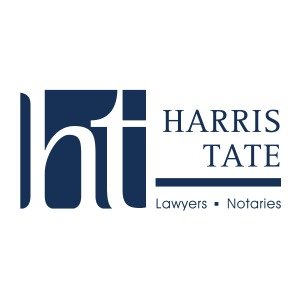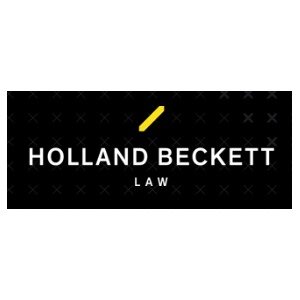Best ADR Mediation & Arbitration Lawyers in Tauranga
Share your needs with us, get contacted by law firms.
Free. Takes 2 min.
List of the best lawyers in Tauranga, New Zealand
About ADR Mediation & Arbitration Law in Tauranga, New Zealand:
Alternative Dispute Resolution (ADR), including Mediation and Arbitration, is a commonly used method of addressing legal disputes in Tauranga, New Zealand. The principles of ADR are developed to help parties involved in disputes resolve their issues without going through a traditional court process. Mediation is a cooperative method where a neutral third party helps disputing parties reach an agreement by facilitating open and regulated discussion. Arbitration involves a third-party arbitrator who makes a legally binding decision after hearing both sides in the dispute.
Why You May Need a Lawyer:
ADR, including Mediation and Arbitration, can be complex and technical. Parties involved might face several challenges, such as understanding legal jargon, determining the applicability of laws, and comprehending the potential implications of the agreement. Professional legal advice can come handy to ensure the process is fair and the resulting agreement is enforceable. Lawyers can ensure your interests are protected, assist in articulating your position clearly, and guide in understanding your legal rights and obligations.
Local Laws Overview:
The local laws that govern ADR Mediation and Arbitration in Tauranga are enshrined in the Arbitration Act 1996 and include specific provisions in the District Court Rules 2014 and High Court Rules 2016. New Zealand is a signatory to the United Nations Convention on International Settlement Agreements Resulting from Mediation. Hence, Mediation and Arbitration are permissible and enforceable under New Zealand law with certain restrictions and prerequisites. Local laws tend to lean towards party autonomy and less formal constraints to enhance the flexibility and versatility of ADR processes.
Frequently Asked Questions:
1. Can I opt for Mediation or Arbitration instead of court proceedings?
Yes, ADR processes like Mediation and Arbitration are available as alternatives to traditional court proceedings. Parties can agree to resort to these methods to resolve a dispute at any time.
2. Is the decision made through Mediation or Arbitration legally binding?
Mediation results in a mutually agreed settlement, which can be converted into a legally binding contract. Arbitration results in an Arbitrator's decision, which is indeed legally binding and enforceable.
3. Can I represent myself in ADR processes?
While you can represent yourself, expert legal advice may be beneficial as ADR processes often involve complex matters and legalities.
4. In a dispute, who pays for the ADR process?
Usually, the parties share the costs for the ADR process. However, the specifics, including fees of the mediator or arbitrator, can be agreed upon by the parties themselves.
5. Can I bring a lawyer or representative to the mediation session?
Yes, you can bring a lawyer or a representative to the mediation session to assist you in the proceedings.
Additional Resources:
For understanding ADR Mediation & Arbitration in Tauranga, you can refer to the official website of the Arbitrators' and Mediators' Institute of New Zealand (AMINZ), The Ministry of Justice website, and the New Zealand Law Society. Each provides valuable information and resources to understand ADR processes in depth.
Next Steps:
If you need legal assistance in ADR Mediation & Arbitration, consider contacting a legal professional or a law firm specializing in ADR in Tauranga. They can provide expert advice on your case, help you understand your legal rights, manage the proceedings, and handle all documentation required for ADR processes. It's also important to explore various options before hiring a lawyer to ensure you get one that fits your needs and budget.
Lawzana helps you find the best lawyers and law firms in Tauranga through a curated and pre-screened list of qualified legal professionals. Our platform offers rankings and detailed profiles of attorneys and law firms, allowing you to compare based on practice areas, including ADR Mediation & Arbitration , experience, and client feedback.
Each profile includes a description of the firm's areas of practice, client reviews, team members and partners, year of establishment, spoken languages, office locations, contact information, social media presence, and any published articles or resources. Most firms on our platform speak English and are experienced in both local and international legal matters.
Get a quote from top-rated law firms in Tauranga, New Zealand — quickly, securely, and without unnecessary hassle.
Disclaimer:
The information provided on this page is for general informational purposes only and does not constitute legal advice. While we strive to ensure the accuracy and relevance of the content, legal information may change over time, and interpretations of the law can vary. You should always consult with a qualified legal professional for advice specific to your situation.
We disclaim all liability for actions taken or not taken based on the content of this page. If you believe any information is incorrect or outdated, please contact us, and we will review and update it where appropriate.












